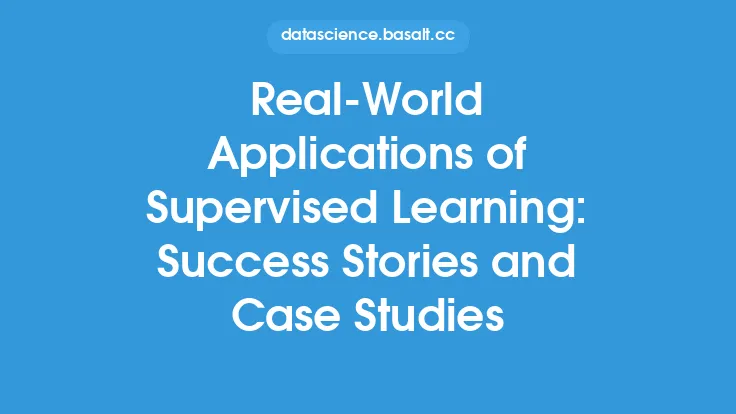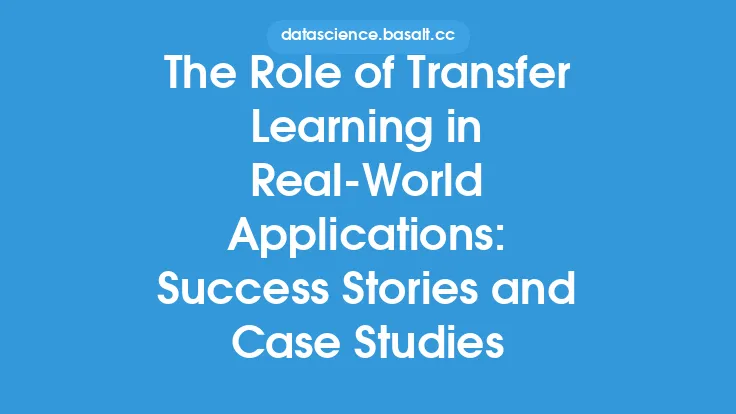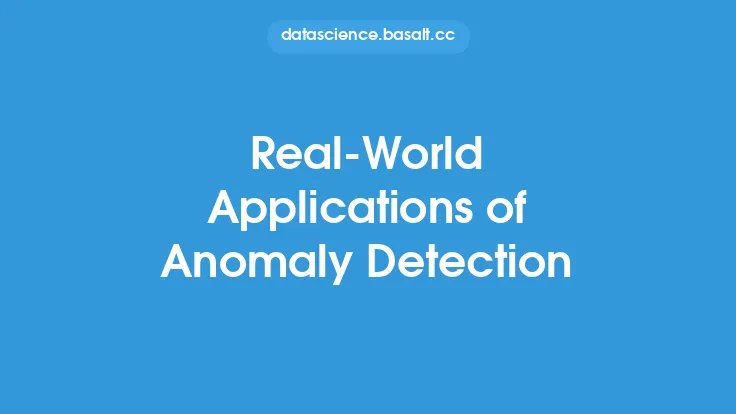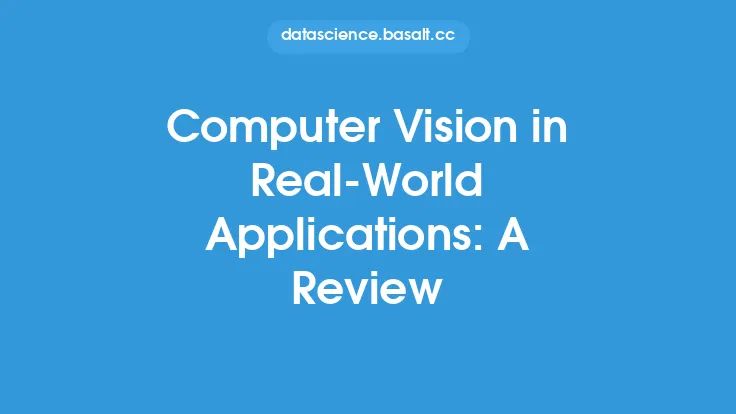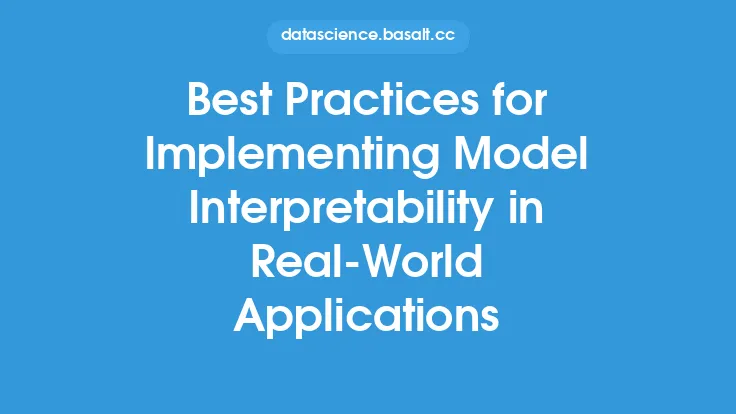Deep learning, a subset of machine learning, has been gaining significant attention in recent years due to its ability to learn complex patterns in data and make accurate predictions or decisions. This technology has numerous applications across various industries, and its potential continues to grow as research and development advance. In this article, we will explore the key applications of deep learning in real-world scenarios, highlighting its impact and potential in transforming the way we live and work.
Introduction to Deep Learning Applications
Deep learning applications are diverse and can be found in various sectors, including healthcare, finance, transportation, and education. The technology's ability to analyze large amounts of data, recognize patterns, and make predictions has made it an essential tool for businesses and organizations seeking to improve their operations and decision-making processes. From image and speech recognition to natural language processing and predictive analytics, deep learning has the potential to revolutionize the way we approach complex problems and tasks.
Computer Vision and Image Recognition
One of the most significant applications of deep learning is in computer vision and image recognition. This technology enables computers to interpret and understand visual data from images and videos, allowing for various applications such as object detection, facial recognition, and image classification. Deep learning-based computer vision has numerous applications in areas like security and surveillance, healthcare, and self-driving cars. For instance, deep learning-based algorithms can be used to detect tumors in medical images, recognize faces in security footage, or identify obstacles in the path of self-driving cars.
Natural Language Processing and Text Analysis
Deep learning has also had a significant impact on natural language processing (NLP) and text analysis. This technology enables computers to understand and interpret human language, allowing for applications such as language translation, sentiment analysis, and text summarization. Deep learning-based NLP has numerous applications in areas like customer service, marketing, and language translation. For example, deep learning-based chatbots can be used to provide customer support, while language translation algorithms can be used to translate text and speech in real-time.
Speech Recognition and Synthesis
Deep learning has also been applied to speech recognition and synthesis, enabling computers to recognize and generate human speech. This technology has numerous applications in areas like virtual assistants, voice-controlled devices, and language translation. For instance, deep learning-based speech recognition algorithms can be used to transcribe audio recordings, while speech synthesis algorithms can be used to generate realistic speech for virtual assistants and other applications.
Predictive Analytics and Forecasting
Deep learning can also be used for predictive analytics and forecasting, enabling businesses and organizations to make informed decisions based on data-driven insights. This technology can be applied to various areas, including finance, healthcare, and transportation, to predict outcomes and trends. For example, deep learning-based algorithms can be used to predict stock prices, forecast weather patterns, or identify potential health risks.
Healthcare and Medical Imaging
Deep learning has numerous applications in healthcare, particularly in medical imaging and diagnostics. This technology can be used to analyze medical images, detect diseases, and predict patient outcomes. For instance, deep learning-based algorithms can be used to detect tumors in medical images, predict the likelihood of disease progression, or identify high-risk patients. Deep learning can also be used to develop personalized treatment plans and improve patient care.
Autonomous Vehicles and Robotics
Deep learning is also being applied to autonomous vehicles and robotics, enabling self-driving cars and robots to navigate and interact with their environment. This technology can be used to develop advanced driver-assistance systems, such as lane departure warning and adaptive cruise control, as well as fully autonomous vehicles. Deep learning-based algorithms can also be used to control robots and drones, enabling them to perform complex tasks and navigate through challenging environments.
Education and Learning
Deep learning can also be used to improve education and learning, particularly in areas like personalized learning and adaptive assessment. This technology can be used to develop intelligent tutoring systems, which can provide personalized feedback and guidance to students. Deep learning-based algorithms can also be used to analyze student performance data, identifying areas where students need additional support and providing targeted interventions.
Challenges and Limitations
While deep learning has numerous applications and potential benefits, it also poses several challenges and limitations. One of the significant challenges is the need for large amounts of high-quality training data, which can be difficult to obtain and preprocess. Deep learning models also require significant computational resources and expertise to develop and deploy. Additionally, deep learning models can be prone to bias and errors, particularly if the training data is biased or incomplete.
Future Directions and Opportunities
Despite the challenges and limitations, deep learning has numerous future directions and opportunities. One of the significant areas of research is in explainable AI, which aims to develop techniques for interpreting and understanding deep learning models. Another area of research is in transfer learning, which enables deep learning models to be applied to new tasks and domains with minimal additional training. Deep learning also has potential applications in areas like edge AI, which enables AI models to be deployed on edge devices, and federated learning, which enables AI models to be trained on decentralized data.
Conclusion
In conclusion, deep learning has numerous applications in real-world scenarios, from computer vision and image recognition to natural language processing and predictive analytics. This technology has the potential to transform the way we live and work, enabling businesses and organizations to make informed decisions, improve operations, and develop innovative products and services. While deep learning poses several challenges and limitations, it also has numerous future directions and opportunities, particularly in areas like explainable AI, transfer learning, and edge AI. As research and development continue to advance, we can expect to see even more innovative applications of deep learning in the future.
